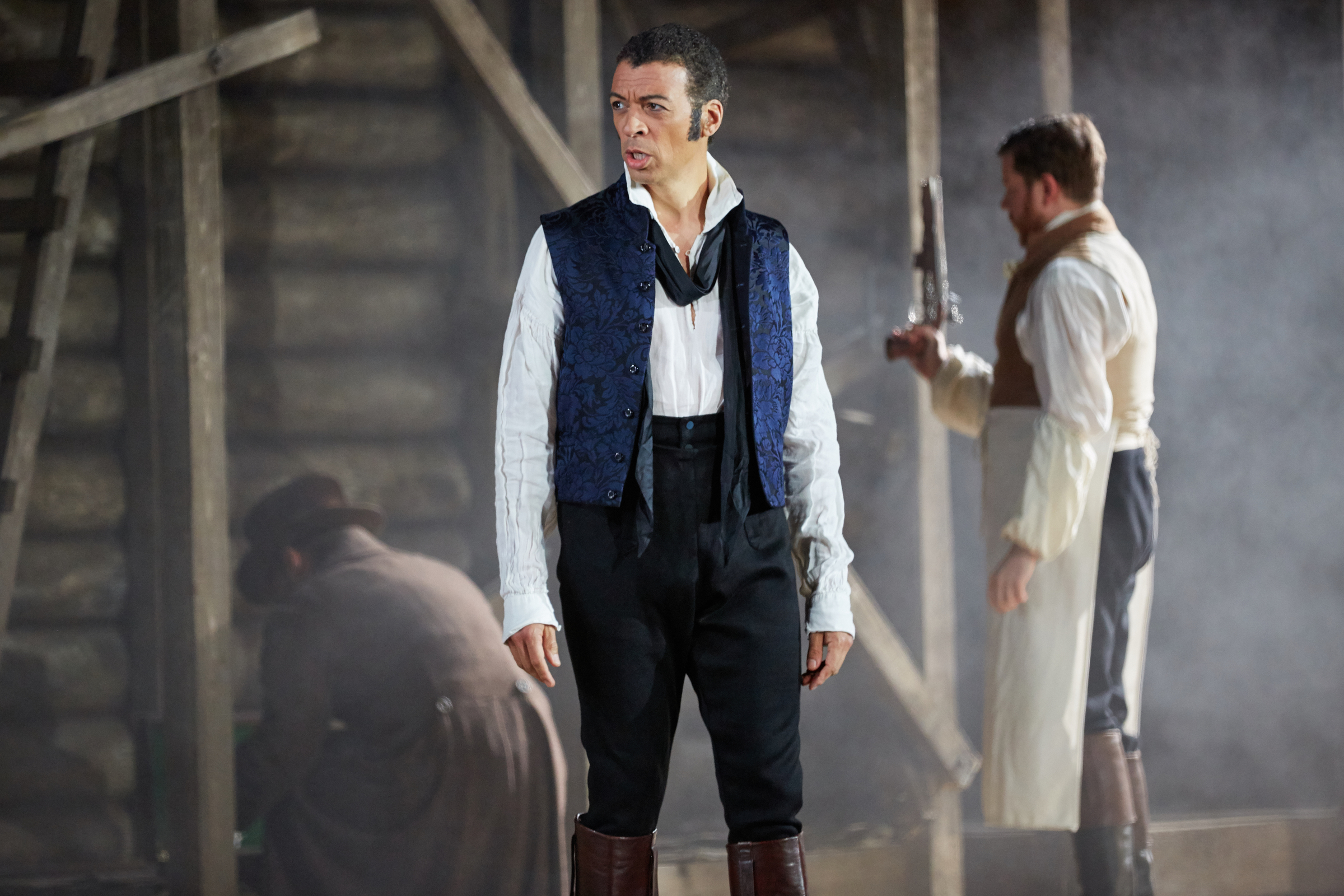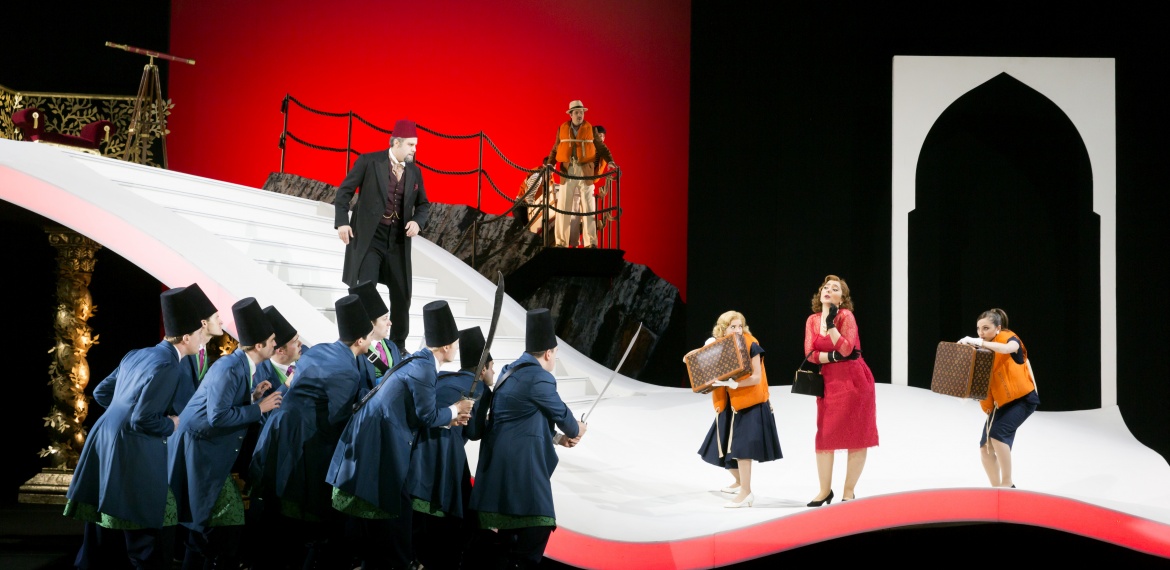The Wormsley Estate seems to have a micro-climate all of its own. While most of England seemed to be battered by storms, the Buckinghamshire valley was remarkably quiet, with the lightest of gentle showers just occasionally reminding us of how nasty it was elsewhere.
I realised as we arrived for L’Italiana in Algeri that we have been coming to Garsington Opera now for twenty years and the changes in that time are quite remarkable. Not only do they now have a stable and substantial theatre from which to work (I realise it is called a pavilion but it functions like any other theatre in the country and pavilion gives quite the wrong implication) but the quality of performances is regularly on an international level with singers and productions which would not be out of place in any major opera house throughout the world. Michael Boyd’s production of Eugene Onegin was a good case in point. Here was opera theatre at its best, with the focus on the narrative superbly supported by director, designer, conductor and singers. Tom Piper uses five vast units which are made up of split logs on one side, with sets of wooden stairs and supports on the other.
For much of the first half of the opera, which is set in the Russian countryside, this is entirely apt, with both internal and external scenes warmly surrounded by the wooden walls. The stairs allow characters to appear above the stage as well as within the more claustrophobic interiors, and for the duel scene turn to become a vast barn.
The coup comes in the final scenes when the units turn again to reveal a vast gilded mirror, across the full width of the stage, a stark reminder not only of the social split between country and city but of the quality of life within the city and the way it quite literally reflected the hollowness of Onegin’s personality.
Yet most of this could easily be taken for granted within the rapid movement of Michael Boyd’s production which created entirely credible characters. Much of this reflects his many years of work with the RSC where the concept of the soliloquy mirrors the operatic aria. As a consequence characters are regularly allowed to simply stand and sing, with no extraneous business to interfere with the emotional rapport. This is a great asset yet one which is all too rare today. Not that he was afraid of challenging where it was needed. The duel scene has a superb double-bluff at the end when Onegin falls, shot in the shoulder, before realising that Lenksy is also wounded, but in this case, fatally.
It is the relationship between Lensky and Onegin which lies at the heart of the interpretation, for Lensky’s ghost is present for the whole of the rest of the evening. It never upstages the action but reminds us that the emotional relationship between the two men was stronger than that of Onegin for Tatyana.
Vocally it was an immensely impressive evening with Natalya Romaniw outstanding as Tatyana and Roderick Williams giving one of his finest performances as Onegin. They were joined by Oliksiy Palchykov as a lucid Lensky and Brindley Sherratt as the finest Gremin I can ever recall.
The chorus were as fine as ever, and only the dancing caused any concern. The choreography was out of keeping with the rest of the production, particularly in the opening act where it was anything but rustic.
Douglas Boyd’s conducting was full bloodied and romantic without ever tipping over into sentimentality. A glorious evening which was being recorded. Let us hope this might find its way to DVD eventually – it certainly deserves it.
I wish I could be as enthusiastic about L’Italiana in Algeri. There was much fine singing on show with Mary Bevan outstanding as the put upon Elvira and Luciano Botelho as a light voiced but engaging Lindoro. Ezgi Kutlu amused as Isabella and had the presence for the comedy. The difficulty is the work itself which – without wishing to be over politically-correct – has a lot of very dubious nuances in the plot. Added to this, presenting the Mustafa as Douglas Fairbanks Jnr did not really help matters. The fascinating design by George Souglides set the whimsical tone of the evening, and we were presented with another of Garsington’s wonderful ships (I begin to wonder if they have a job-lot in store which they can use whenever necessary!) David Parry’s conducting was brisk, bright and engaging as were the male chorus who appeared, as ever, to be thoroughly enjoying themselves. The second half moves more purposefully than the first, but, even for Rossini, this really is not a great piece – but then this is one of the benefits of summer festivals as we can enjoy what there is even if we would not like it regularly in the repertoire.
Idomeneo and The Creation still to come this summer, and a full programme already announced for next year.


